Gas Flows: Who Supplies Fuel from Pskov to Latvia?
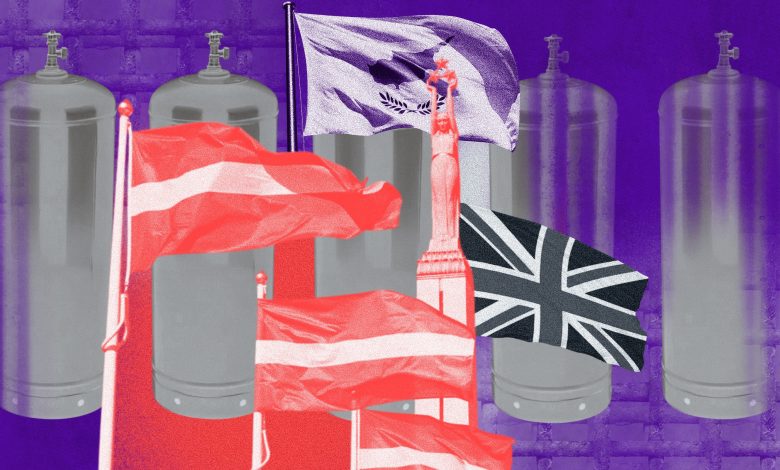
A small Pskov company, Pskovorgsintez, earned more than a million euros by reselling bottled gas to «unfriendly» Latvia. This business, which involves citizens of several countries and a bank with a dubious reputation, is about to go badly, according to Chronicles.Media, Delfi and Pskovskaya Guberniya.
It all started with sea urchin roe
Any liquefied petroleum gases (e.g. propane, butane) are banned from being bought from Russia by the EU Council’s decision of 19 December 2023. However, European officials have set a 12-month transition period for existing contracts.
Apparently, this is what Pskovorgsintez is taking advantage of. The company emerged in December 2019. In the first year of its existence, it showed revenue of 52 thousand rubles. Then the enterprise sent for export not gas at all, as «Chronic.Media» knows, but 3 kg of sea urchin caviar to be examined in the Japanese veterinary centre «Yakuzaishikai Kosuiseisei Kensa Senta» on the island of Hokkaido.
The company did better in 2021. At that time, Pskovorgsintez’s annual revenue totalled almost 42 million roubles (482 thousand euros at the average annual exchange rate), although the company had earned nothing the year before. At the end of 2022, its profit was already almost 46 million (649 thousand euros), and at the end of 2023 it approached 80 million rubles (939 thousand euros).
From 2022 to June 2024, as Chronicles.Media is aware, Pskovorgsintez received more than €1.2 million from gas exports.
The founders of the company are Vitaliy Tikhanov and Marina Fedorova. According to Chronicles, both are natives of Pskov. Fedorova resigned from the founders in April 2021. Tikhanov is still listed as both the director and the only employee of the company.
For his work, he receives approximately the minimum wage (minimum wage), «Chronicles.Media» found out. Until 2024, Tikhanov’s salary was 14 thousand rubles, in 2024 — 17 thousand rubles. The minimum wage in the Pskov region until 2024 was 15.5 thousand rublesrubles, in 2024 — 16 thousand . At the same time, at least in 2024, Tikhanov, as «Chronicles» knows, received dividends of almost 9 million rubles. By replacing salaries with dividends, it is possible to avoid taxes: no money has to be deducted from dividends to various insurance funds.
Prior to Pskovorgsintez, Tikhanov received money from other Pskov gas-related companies: «Pskov Gas» and «Toplivno-Energeticheskie Resolutions». The latter was once co-founded by the entrepreneur himself. His wife Svetlana, as Chronicles knows, worked in the company as general director.
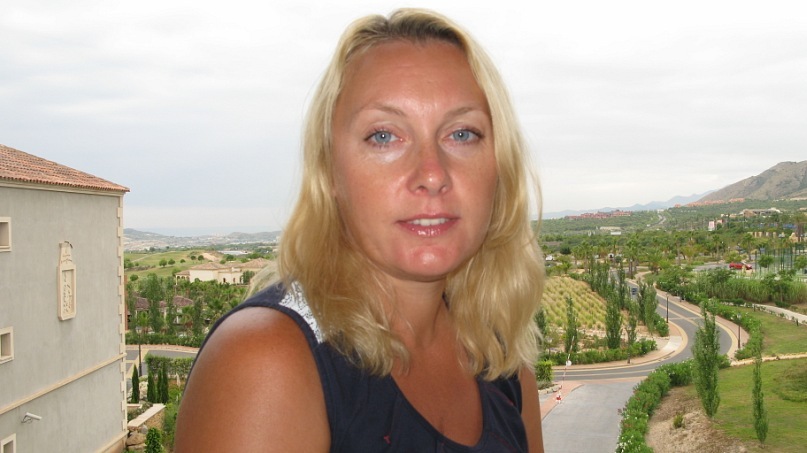
«Pskov Gaz, in turn, was linked to another company in Region 60, SpetsGaz. It managed the interests of several co-owners of Pskov Gas, and sometimes bought and supplied gas to Pskovorgsintez.
Former co-owner of Pskovorgsintez Marina Fedorova, as «Chronicles.Media» found out, also worked at SpetsGas until at least 2021.
Pskovorgsintez has another curious connection with this company. «Pskovorgsintez» is located at the address Pskov, nab. Velikaya River, 6, 1st floor, office 103. A journalist from the Pskovskaya Guberniya newspaper visited the place. There were no signs on the door of office 103, a lone female employee of the company was sitting in office 104, and the list of all offices in the building, which the journalist received from the security guard, indicated that offices 103 and 104 were occupied by the company «SpetsGaz».
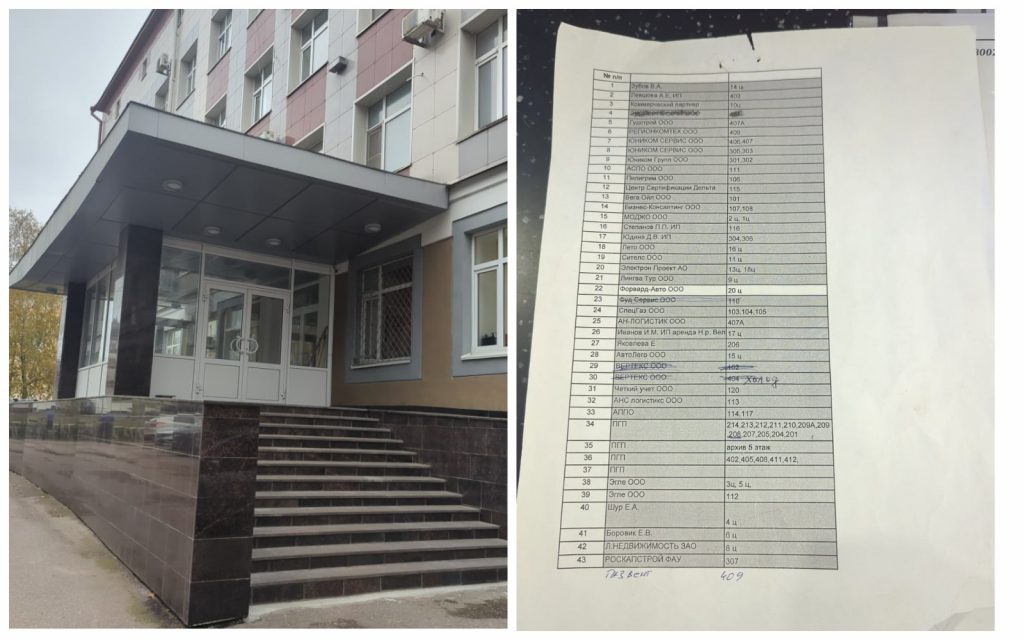
Office of “Pskovorgsintez” — “SpetsGaz”
Moreover, according to the Unified State Register of Legal Entities, in July 2024, the Federal Tax Service found that the information on the address of Pskovorgsintez was inaccurate.
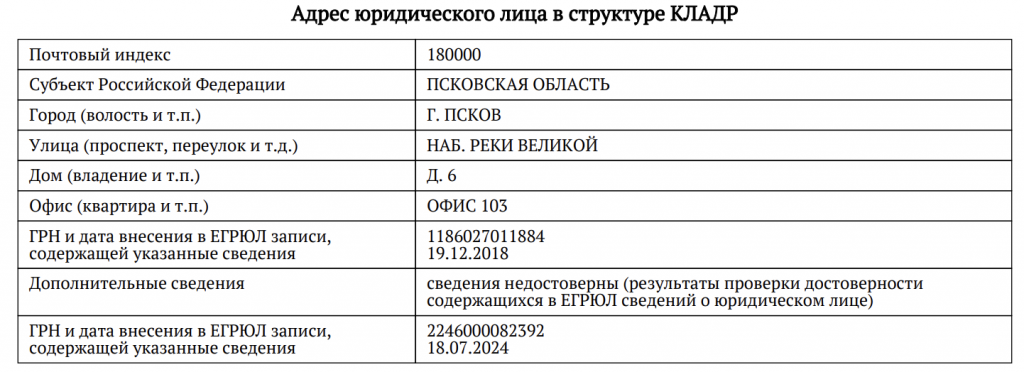
RosGas
Pskovorgsintez purchases most of the gas that is sent for export from the St. Petersburg company RosGaz (more than 60 million rubles since 2022), the Pskov company GNS Velikie Luki (about 40 million rubles) and individual entrepreneur Andrei Redkov (almost 40 million rubles).
The Orenburg edition of 56 Media wrote about RosGaz in 2020, when the company started working in the region with Rosneft’s subsidiary RN-Buzuluk Gas Processing Enterprise. The journalists found out that RosGas was then owned by a certain Zhanna Tatsiy. She also managed the company. At the same time, Tatsiy posted CVs for the position of a tour guide and worked as a designer. That is, apparently, acted as a nominal head of the enterprise with a turnover of hundreds of millions of rubles. Characteristically, in the public information about the company for 2021-2022, there is no data about Tatsiy.
Nevertheless, Tatsiy is not a stranger to RosGas. The company’s website has information that a RosGas petrol station will appear on Ilyushina Street in Voronezh. The contact person is listed, as established by «Chronicles.Media», as Tatsiy’s son Vadim. He himself owns and manages several gas companies in St. Petersburg and the Pskov Region.
«GNS Velikie Luki, judging by the archive of court cases, works with Gazprom, Rosneft and Kirishinefteorgsintez (owned by Surgutneftegaz, according to Dossier, the company of Russian President Vladimir Putin). The company is owned by a certain Roman Zhuravlev. Chronicles.Media knows that he, like Zhanna and Vadim Tatsiy, is a native of the Stavropol Territory. A few years ago, Zhuravlev was also a co-owner of the Pskov Gas company mentioned above.
Finally, another gas supplier for Pskovorgsintez is entrepreneur Andrey Redkov. He and his companies buy gas from Gazprom and Lukoil on the St. Petersburg International Commodity Exchange.
Belarusian trace
The importers of gas from Pskovorgsintez in 2022-2024 are Latvian companies ADR Turbo (EUR 1.2 million) and SOS Group (about EUR 30 thousand in April-June 2022).
At the same time, as Chronicles.Media knows, in 2022 Pskovorgsintez received money for supplies from the Cypriot offshore Alfonsina Commercial Limited. This company belongs to another Cypriot legal entity Foreline Development, registered as far back as 2007. Since 2018, it has been controlled by Andrei Yevstratov, a Cypriot resident (or Andrei Yeustratau according to an extract from the Cypriot register).
It is also noteworthy that a user with the name Andrei Yeustratau left a laudatory comment on the Belarusian delivery service Pony Express on «Yandex.Maps» on 16 February 2024. And Belarus did not appear here by chance.
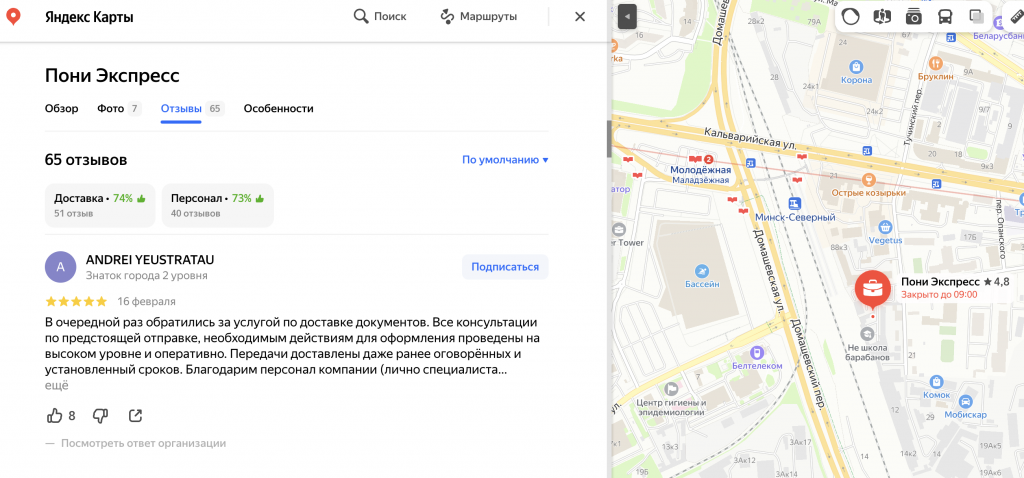
Previously, Foreline Development was owned by the Belarusian entrepreneur Artur Zubarik. Ludmila Neronskaya, Liudmila Zaitseva, Liudmila Yarosh acted as minority owners together with him in different years. «Chronicles.Media» assume the same woman. Each time all Liudmila indicated the same address in Minsk — 54-52 Masherov Avenue.
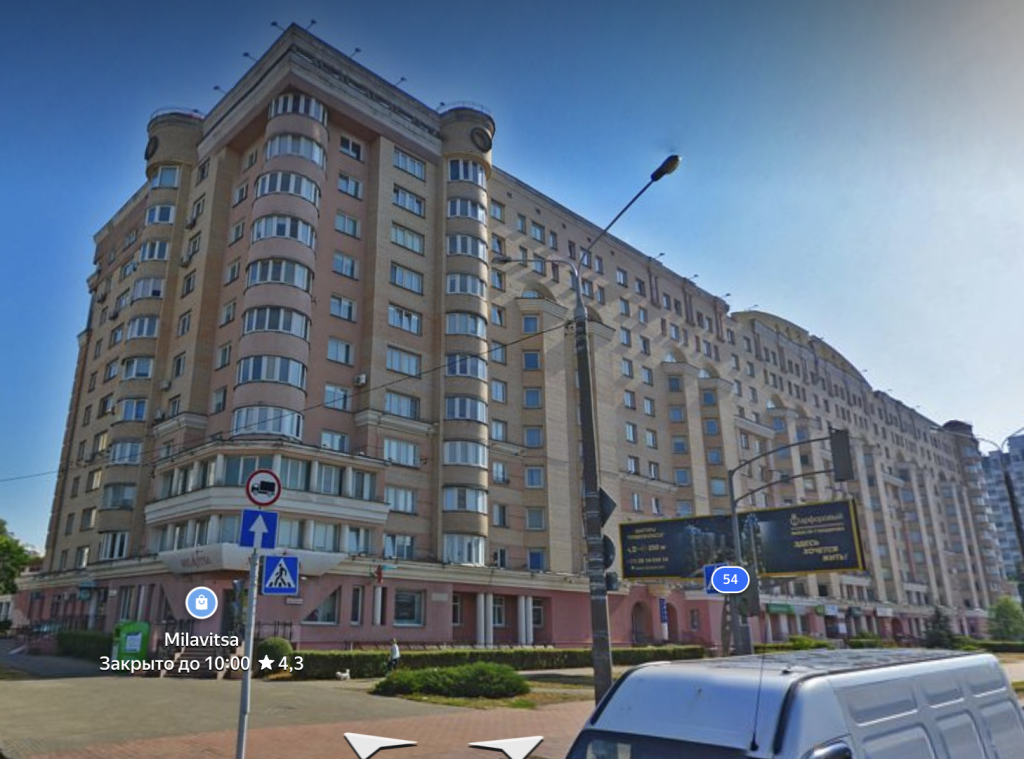
Moreover, Zubarik, as the Belarusian mass media Zerkalo wrote, is linked to the export of propane and butane. The journalists also speculated that the entrepreneur and Liudmila Neronskaya might have business interests with the eldest son of Belarusian leader Aliaksandr Lukashenka, Viktar Lukashenka.
Zubarik, according to Chronicles.Media, still controls the company through his possible nominee Evstratov. Zubarik also owns several gas production and distribution companies in Belarus, Russia and Ukraine.
Thus, in 2017, wrote the pro-Kremlin EurAsia Daily, when Rosneft became a monopoly on autogas exports to Ukraine, other Russian suppliers began exporting the fuel through Belarusian intermediaries, including Transexpedition, a company owned by Zubarik.
Latvian schemes
In 2023-2024, Latvian importers ADR Turbo and SOS Group paid for the supplied gas. As «Chronicles» knows, the goods were delivered to Riga at the address of registration of the first company — 3 Aplokciema Street. There is an industrial zone with various warehouses and enterprises there.
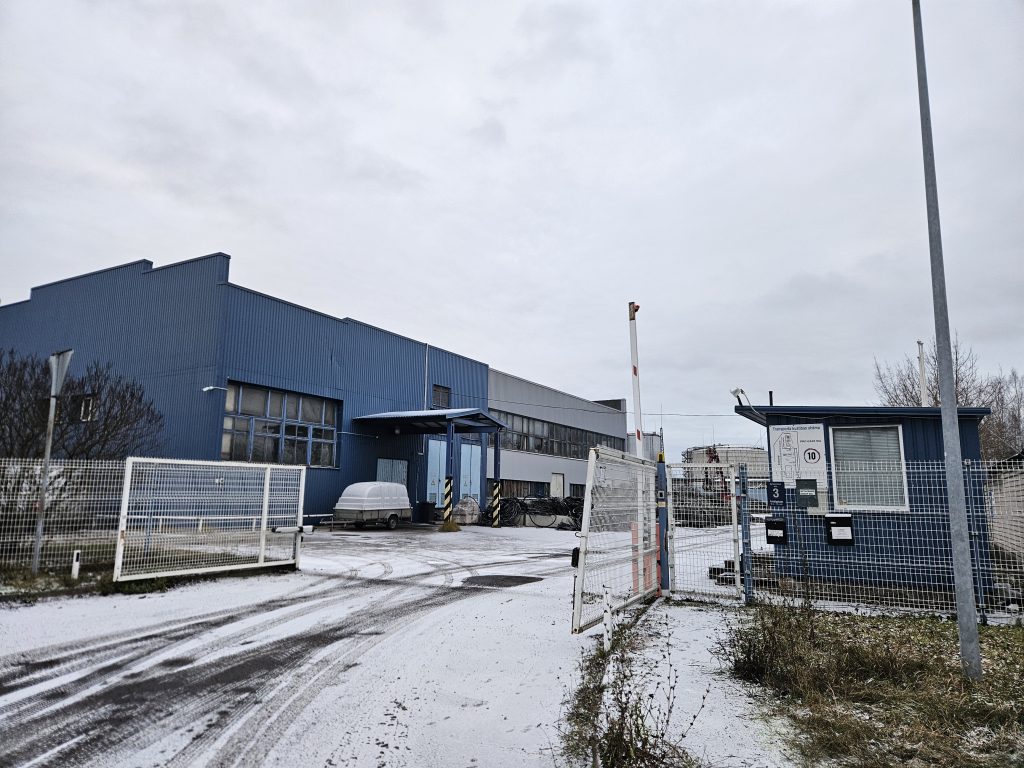
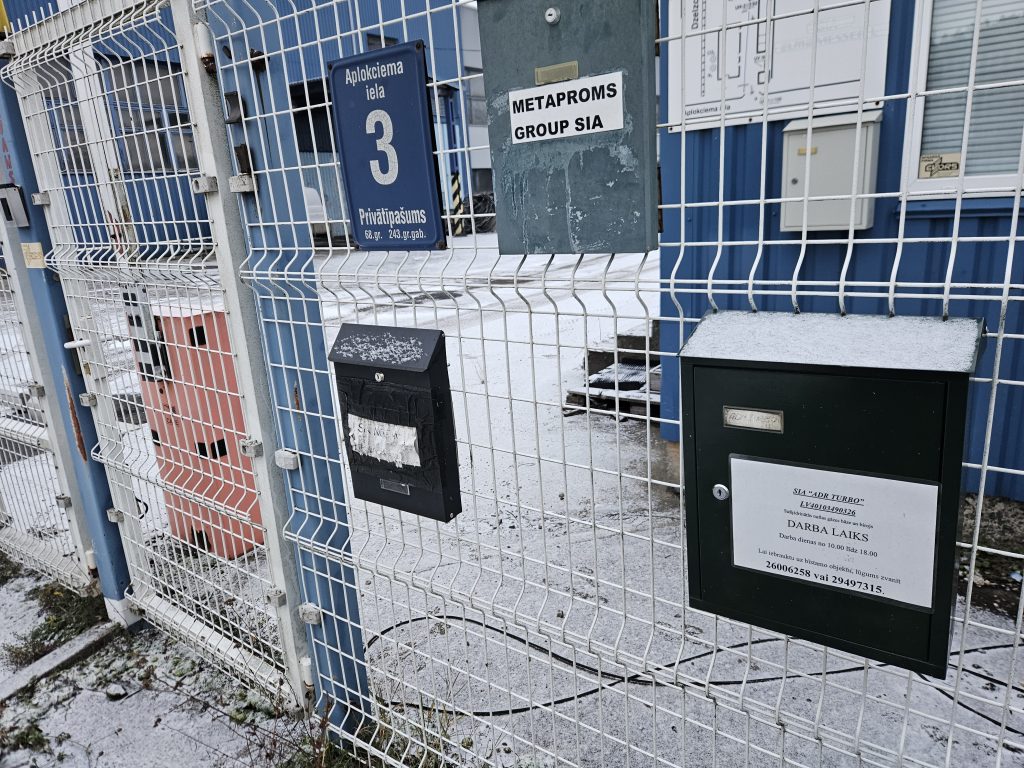
Under the conditions of sanctions, these transactions were carried out through the Bilderlings Pay payment system. It is registered in the UK, but is controlled by the family of Latvian citizen Aleksandrs Peshkovs.
On offshore advice websites, as the investigative project OpenDemocracy wrote, Bilderlings Pay is recommended as an alternative to an account at BluOr Bank (formerly called BlueOrange Bank and Baltikums Bank). It too is controlled by the Peshkov family. In 2014, Delfi publication called it one of the richest in Latvia.
BluOr Bank has been caught up in cross-border scandals before. In 2017, the Latvian Financial and Capital Markets Commission fined the bank, accusing it of helping to transfer money to sub-sanctioned North Korea.
Spiced gas
Now let’s look at the importing companies. Not much is known about SOS Group: only that it was registered in 2021 and is owned by a certain Natalia Volkova. As Chronicles.Media has ascertained, there is no office at the company’s registration address — a house is being built there.
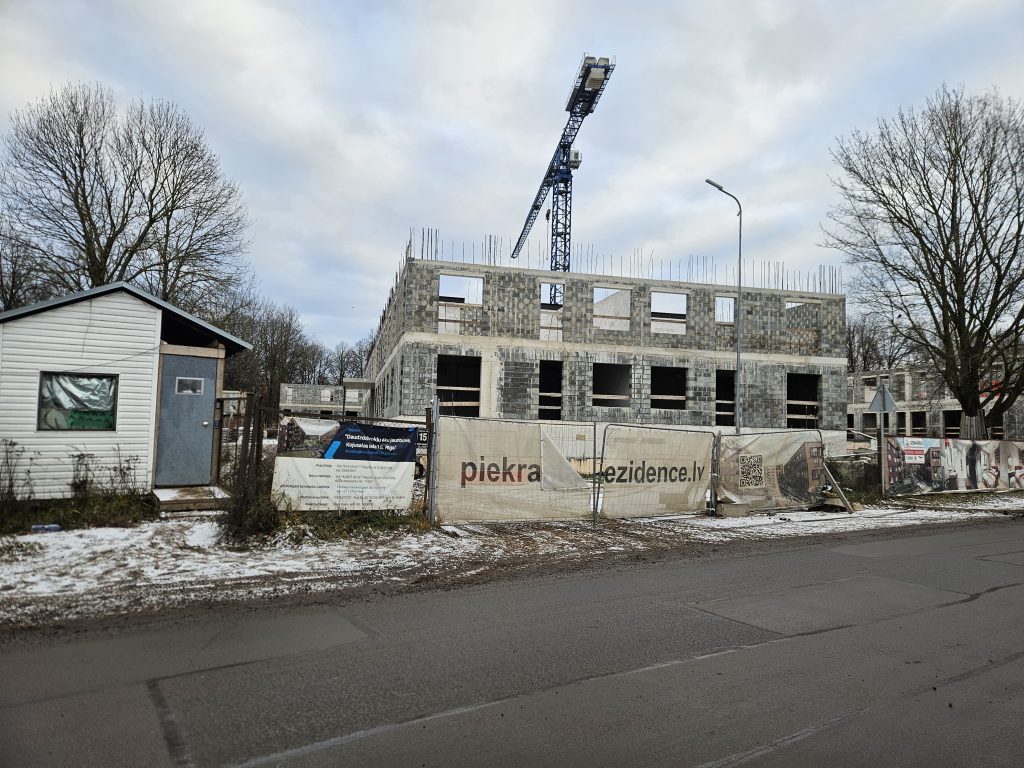
As for the company ADR Turbo, it is owned and managed by Aleksandrs Ozoliņš, a Latvian citizen. He is also a member of the board of Elpis. As stated on his LinkedIn page, he studied at the University of Latvia from 2009 to 2014, then worked at Elpis as a lawyer from 2014 to 2019, and as a chief executive officer (CEO) from 2020.
Elpis trades in pharmaceuticals and spices. Interestingly, in 2024, more than 15 million rubles passed through the accounts of Pskovorgsintez, which was paid by the Pskov company Iva to the Latvian company Elpis. «Iva» is engaged in the same business as Elpis. It is possible that the Russian legal entity is a representative office of the Latvian company. As of June 2024, according to the Latvian Ministry of Economy, Elpis was still on the list of companies that continue to export goods to Russia.
But back to ADR Turbo. Its turnover in 2023 exceeded 2.5 million euros. The net profit was about 300 thousand euros. According to the accounts studied by Delfi, the company had 21 employees in 2023.
The purchase of ADR Turbo gas in 2022 and 2023 from Russian companies does not look like a violation of sanctions, the co-founder of the international NGO State Capture, lawyer Alex Presanti, explained to Chronicles. The participation of Bilderlings Pay in this scheme, he said, also does not raise suspicions. However, if ADR Turbo paid in euros, pounds or dollars, it is important what the amounts were, as it is a small company and the volumes of its operations could account for a significant part of liquefied gas imports to Latvia.
The war is going on, gas is being imported
Cylinder gas, so familiar to many, is used for household and car use. Latvia, as the local public broadcaster LSM reported in early 2024, imported 65 per cent more of this gas in 2023 compared to 2022, when Russia invaded Ukraine. And of all the fossil resources Latvia buys from Russia, it pays the most for liquefied natural gas.
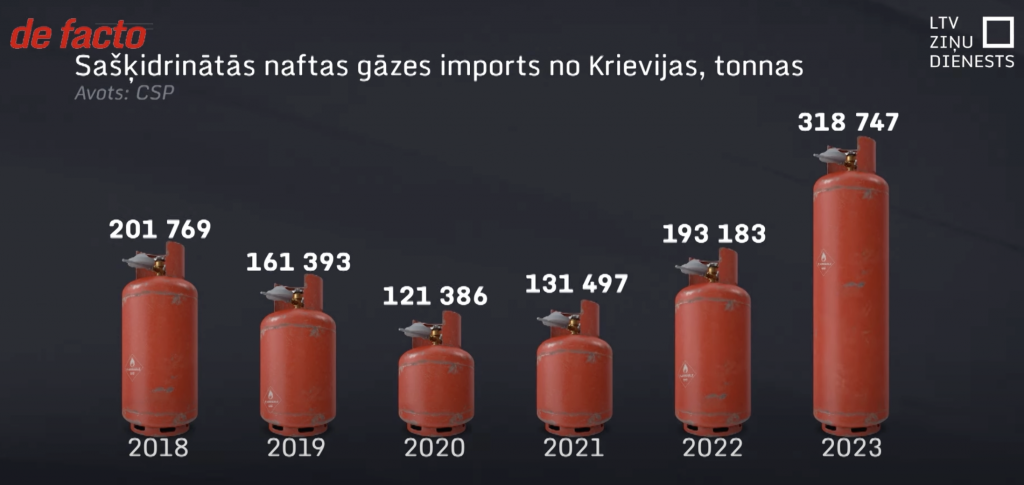
Source: Central Statistical Bureau of Latvia, infographic by LSM
It is noteworthy that local sellers of these gas cylinders are not obliged to indicate the country where the fuel came from. This is understandable, as it is unlikely that an average Latvian would heat his food or fill up his car with gas with «produced in Russia» on the cylinder. That is why Latvian sellers all deny that their gas is imported from Russia, but the state statistics show that, in general, it comes almost exclusively from Russia.
And that’s not all. Despite the hostile diplomatic relations between the two countries, business between them has always been active. Gas is no exception. Its largest sellers in Latvia, Latvijas Propāna gāze and Intergaz, were, before the war, linked to Russian billionaires: Rashid Sardarov, owner of the South Urals Industrial Company, and Igor Makarov. The latter is under Canadian sanctions under the Magnitsky List as a man who enriches himself through good relations with the Kremlin. After the Russian invasion of Ukraine, Makarov was also placed on New Zealand’s sanctions list.
Overall, more than 140 Latvian companies, according to the data of the Ministry of Economy of this country as of spring 2024, continue to do business with Russia. In 2022, there were 350 such companies. At the same time, exports from Latvia to Russia decreased by only 2%.
As for bottled gas, its annual imports into the EU were estimated by the European Council at over €1bn.
Data on companies are taken from the Kontur.Focus counterparty verification system and the State Resource of Accounting Reports
With the participation of Delfi and «Pskovskaia Gubernia»
Alexander Shurshev, Sergey Kagermazov